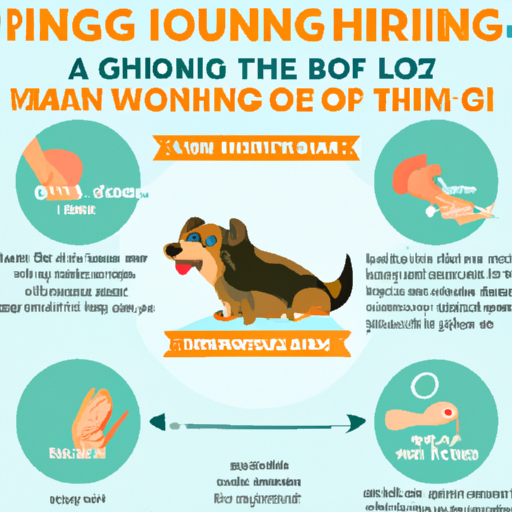A comprehensive guide tailored for caregivers like you, on how to tackle the pesky fungal infection known as ringworm in your beloved canine companions.
H2: Understanding Ringworm: The Invisible Enemy
Ringworm, contrary to its name, is not a worm but a fungal infection. It’s a common occurrence in dogs and can be troublesome if not treated promptly and correctly. This invisible enemy thrives in warm, humid conditions and can affect your dog’s skin, hair, and nails, presenting itself as circular patches of hair loss, redness, and scaly skin.
H2: Identifying the Symptoms
Let’s equip you with the knowledge to recognize the signs of ringworm. The symptoms may include:
- Circular areas of hair loss
- Red, scaly, or rough skin
- Inflammation or redness
- Broken hairs
- Darkened skin (in chronic cases)
Remember, if you spot any of these symptoms, it’s time to consult with your vet.
H2: Treating Ringworm at Home
While a visit to the vet is essential, there are also ways to support your dog’s recovery at home. Here are some steps you can take:
- Isolate your infected dog: Ringworm is highly contagious, so it’s best to separate your infected dog from other pets.
- Disinfect your dog’s environment: Regularly clean and disinfect their bedding, toys, grooming tools, and other items they frequently come into contact with.
- Apply topical treatments: Use medicated shampoos, ointments, or creams recommended by your vet.
H2: Preventing Future Outbreaks
Ringworm could be lurking anywhere, so prevention is crucial. Here are some preventative measures:
- Regularly disinfect your dog’s items
- Keep your dog’s living environment dry and clean
- Regularly groom your dog and check for symptoms
- Ensure your dog is eating a balanced diet to keep their immune system strong
H2: Frequently Asked Questions
Q: Can humans get ringworm from dogs?
A: Yes, ringworm can spread from dogs to humans.
Q: How long does it take for ringworm to clear up in dogs?
A: With proper treatment, it generally takes 2-4 weeks.
Q: Can ringworm go away on its own in dogs?
A: It’s possible, but it’s best to treat it to prevent spreading.
Q: Can all dogs get ringworm?
A: Yes, all dogs are susceptible, but puppies and immunocompromised dogs are more at risk.
Caring for your canine companion requires vigilance, patience, and love. Remember, early detection and treatment are key to tackling ringworm. If you suspect your pet has ringworm, always consult with your vet to ensure proper care and treatment.



